Theo Randall is one of the UK’s most respected chefs, boasting a career that has spanned 30 years. His passion for food was born out of family holidays travelling around Europe, but his career properly began when he joined the waiting staff at acclaimed London restaurant Chez Max. After just a few weeks of working in the restaurant, Randall’s passion for cooking was spotted by chef Max Magarian, who asked him to join the Chez Max’s kitchen team. Randall spent four years under Magarian, learning the trade that would eventually be at the heart of his success.
In 1989, Randall joined The River Café, where he spent 15 years as head chef (the restaurant was also awarded its first Michelin star during this time). Randall departed The River Café in 2006 in order to open his own restaurant. Theo Randall at the InterContinental on Mayfair’s Park Lane has been a London favourite ever since, serving up rustic and seasonal Italian food in a setting that’s far less stuffy than your traditional Mayfair joint.
While Randall may have been in the business for decades now, his passion for cooking and restaurants is as strong as ever. We caught up with him to talk about why he left The River Café, his thoughts on the Michelin guide and if he thinks there’s still a place for chain restaurants on London’s dining scene.
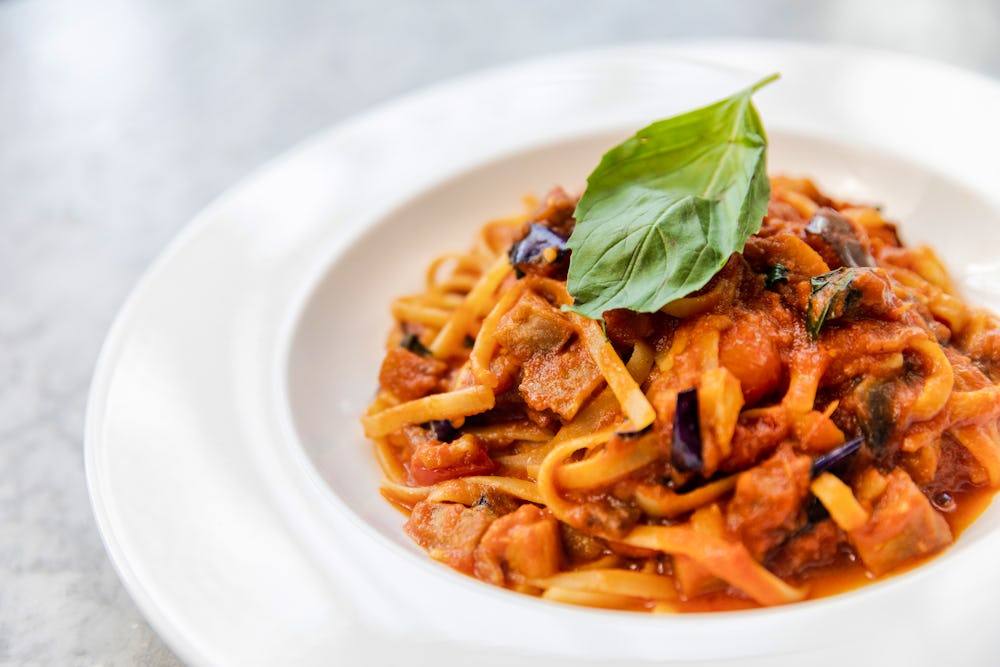
When did you first realise you wanted to be a chef?
I grew up in a family that loves food, and when we’d go on holiday to Spain and Italy, we’d visit all of these museums, which I found intensely boring at the time! Part of the deal though was that we’d go for a nice lunch afterwards and I could choose the restaurant. Growing up with that, along with my mother being a fantastic cook and my whole family being obsessed with food, it made perfect sense that I would become a chef.
Do you think it’s important that chefs pay their dues?
Absolutely! I know that washing dishes sounds like the worst job in the world, but it gives you a great understanding of how a kitchen works, because you see the flow of service and the stress people are under. When I did it, I became a master of getting the washing up just right and those skills help you later in life when you end up running the kitchen.
The River Café was awarded its first Michelin star during your time there – why do you think the restaurant is so enduringly popular?
It’s a combination of things. When the restaurant opened in 1987, no one would go to Hammersmith to eat, but the location is quite unique – the view there is incredible. Obviously, the food is really fantastic and incredibly consistent too; the ethos of the restaurant hasn’t changed one bit since it opened.
Why did you leave The River Café?
When the InterContinental Hotels Group came to me, they said this would be my restaurant and that I would be in charge. I was 38 at the time, and thought it was just a fantastic opportunity. I had been at River Café for 16 years and never wanted to leave unless it was for something quite big and I felt like this was that opportunity.
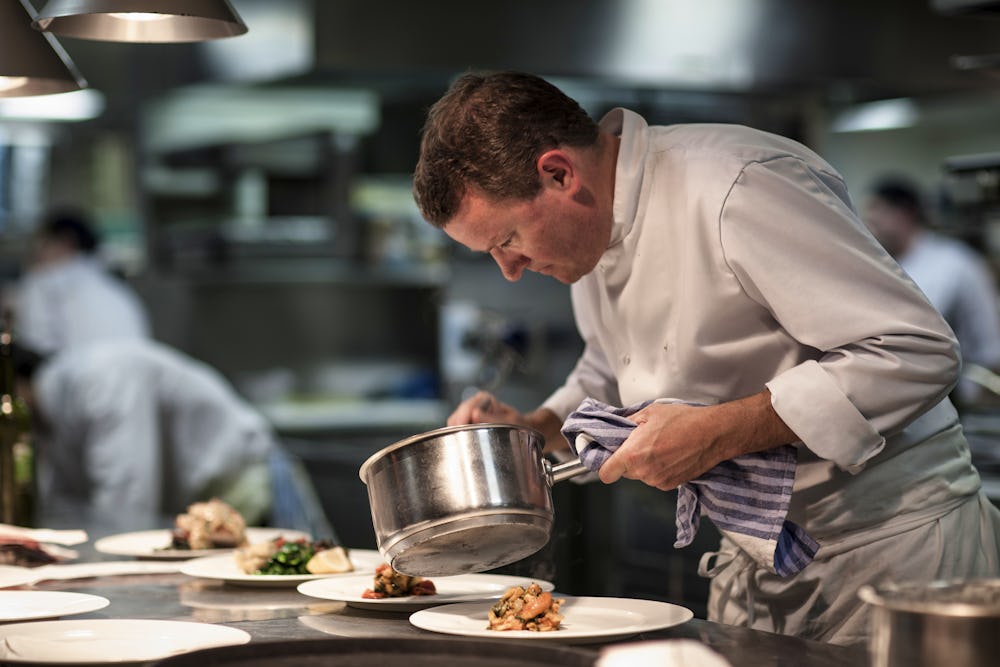
What do you do to retain staff in your restaurant?
Longevity of staff is the key to success in restaurants. For me, communication is so important in kitchens and restaurants, and it’s not just about the chefs. I try to spend as much time with the floor staff as I do the kitchen staff, and things like big staff lunches on a Saturday afternoon give everyone a chance to chat too. I love watching young waiters and young chefs develop and being part of that journey is incredibly inspiring.
Do you think the Michelin guide is still relevant?
I think the guide definitely has a place. It’s been going for years and there will always be controversy around it, but Michelin is still relevant and has adapted itself over the years. I think it’s particularly good for France, but it’s a world-renowned guide and people will always use it.
Why did you want to open your own restaurant?
I think as a young chef, it’s what you dream about. I was at River Café for 16 years and it was very difficult to leave such a great place, but at the end of the day I wanted to prove myself and do something for me. It’s one of those things you always want to do, you always want to have your name above the door.
What would you say to people who think hotel restaurants are boring?
I always call them restaurants in hotels rather than hotel restaurants, as that’s definitely what we are. When we first opened in Park Lane, most restaurants were very formal but we wanted to open somewhere where people felt much more relaxed. I can see why people might think hotel restaurants are boring, but if you’ve got a great team of people and a good location, there’s nothing wrong with them, they can be fantastic places.
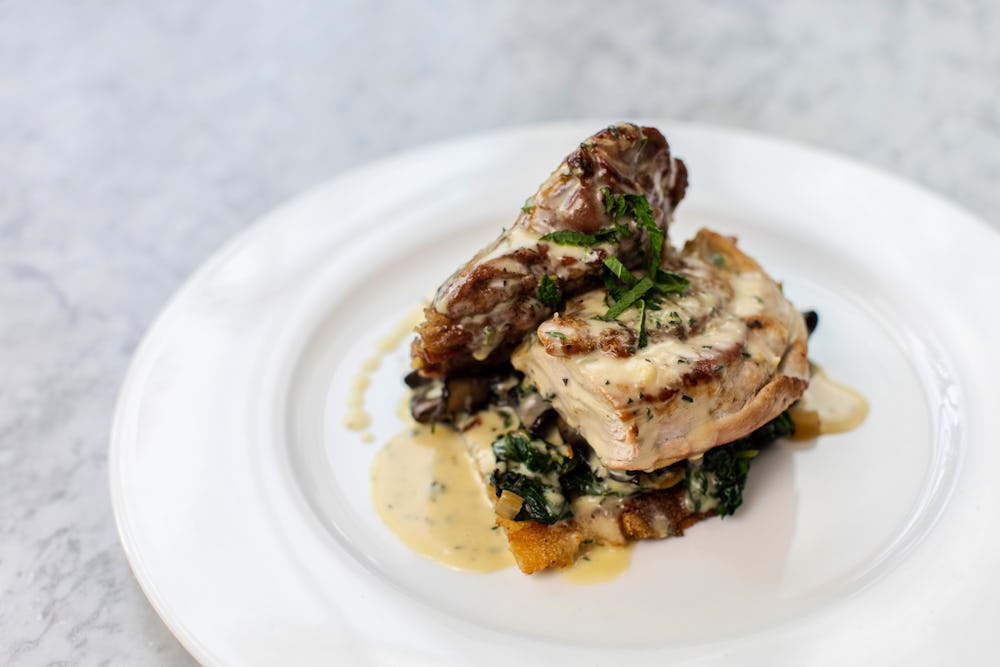
What’s your favourite dish on the menu at your restaurant?
That’s a tough one! There are so many dishes I’ve loved over the years but one I love at the moment is the spatchcock pigeon. It’s a squab pigeon which we marinate with thyme and masala, and serve it with this amazing roasted Italian squash alongside fresh porcini mushrooms. The pigeon is spatchcock so we take the carcass off, marinate it and then it’s roasted on a bruschetta so all the fat on it goes into the bread and makes it crisp. It’s delicious!
Sustainability is a big topic right now – what does your restaurant do to be eco-conscious?
We all try and do as much as we can, but everyone can do more. We buy from as many UK suppliers as possible and we recycle everything. We’re a very frugal kitchen so waste is extremely low, plus we buy from suppliers that I’ve known for years and I look at their practices – we don’t get things in plastic boxes for example. There’s lots more things we could do, but we’re very conscious of what wastage is and how things can be recycled and that’s definitely a start.
How do you accommodate for the rise of vegetarianism/veganism? Have you found that to be a challenge?
I’ve always been a big fan of cooking vegetables anyway, and many of our dishes might have four or five vegetable elements to them, so we always have a pretty large amount of vegetables on the à la carte. Believe it or not, we’ve also had vegan and vegetarian tasting menus pretty much from day one, because we’ve always had that demand. It’s great for business as you might have someone looking to celebrate their birthday who is vegan but their friends aren’t and we provide a viable option for them.
You’ve collaborated with the likes of Pizza Express and ASK Italian in the past. What do you think about the future of restaurant chains in the UK?
I think people are becoming much more supportive of local restaurants rather than big chains, but there will always be a place for chains on the high street. I think there’s a lot of uncertainty in general because of Brexit and I think chain restaurants have suffered more than most. I’m sure they’ll bounce back and I think there will always be chain restaurants, but maybe they’ll be a bit smaller in scope.
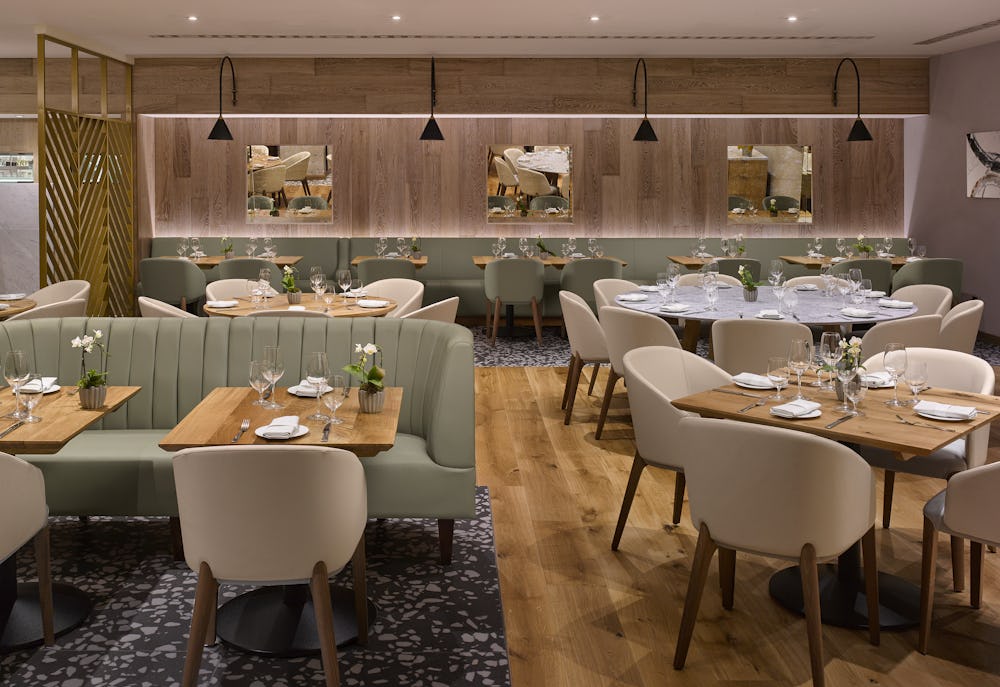
Are you worried about the impact Brexit will have on your restaurant and the UK restaurant scene in general?
Everyone is concerned about Brexit and what is going to happen to restaurants. There’s been uncertainty for three years, but when it comes to business, there’s no real cycle anymore. We’re very fortunate in that we have two private dining rooms and a central London location, but I think the key thing regarding Brexit is that we need some certainty and we need to come up with a solution, as it’s been dragging on for a while now.
What is the secret to your success?
I would say doing what I do is very hard work and it takes a lot of time. My advice is to always be focused and work as hard as you can. Also remember that you’re nothing without your team and that retention of staff is incredibly important. I’d also say it’s crucial to be polite; I was brought up to be polite and to never burn any bridges.
What do you think about the role of social media in food and people taking pictures of food at restaurants?
I’m ok with it; it’s a bit like taking a photograph of a great view. What’s wrong with that? Although it’s definitely in the back of people’s minds; I’ll sometimes joke with my chefs: “make sure that dish looks perfect, as someone might photograph it!”
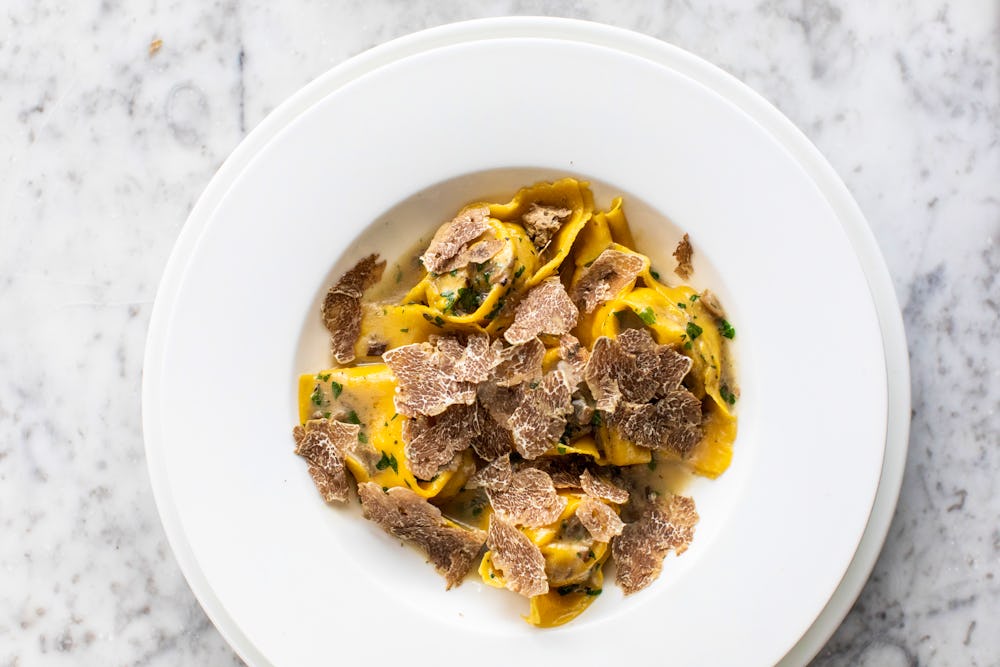
Theo's Quick Bites:
Favourite restaurant in London?
That would have to be Clipstone. I’m a big fan of that restaurant, I think the food there is fantastic.
Favourite thing to cook at home?
Risotto for sure.
What would be your death-row meal?
I’ve thought about this forever. It would be poached langoustine with olive oil, tallarini with white truffle, a roasted Scottish grouse on bruschetta with porcini mushrooms, and a bowl of ice cold cherries that I could sit on a terrace and spit out the pips, like Desperate Dan.
Guilty food pleasure?
Tunnock’s tea cakes – they’re unbelievable.
Describe your cooking style in three words
Simple, seasonal and delicious.
If you weren’t a chef, what would you be doing?
A sculptor in metal. When I was quite young, I was really into metal work and it was something I really enjoyed.
Theo Randall is known for his excellent Italian dishes, but he's not the only chef serving up pizza, pasta and the like in the capital. Check out our pick of the best Italian restaurants in London.